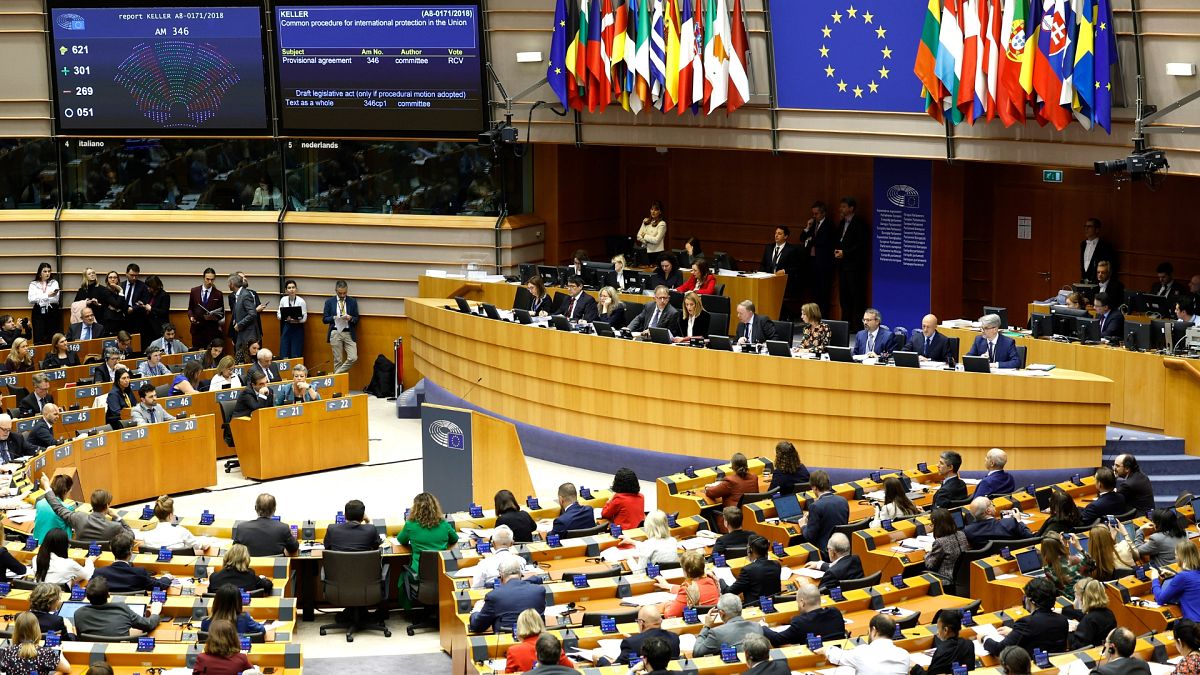How the Changemakers initiative is getting Gen Z to engage in voting ahead of the European Parliament elections this year.
How do you get the youngest generation excited about voting? This is the challenge an initiative is tackling ahead of this year’s European elections.
Changemakers is a wide-ranging initiative from the European University College Association (EucA) that runs programmes to engage young voters across the continent. Its latest programme, Gen Z Votes, takes place over four events in four different countries and puts participants in the driving seat to drive policymaking and the information campaigns around elections.
Across events in Coimbra, Portugal; Catania, Italy; Thessaloniki, Greece; and Dubrovnik, Croatia, 240 participants from 15 countries will brainstorm, film and edit engaging video content aimed at sparking interest in other young voters to demand change. “These videos aim to show the power of youth vote, the how and why of different forms of civic participation in national and European elections, and the EU policies’ impact on everyday life,” a spokesperson from EucA tells Euronews.
The EucA’s main goal is to galvanise younger voters into believing in the power they have as democratic citizens of the EU, and enacting that power when it comes to the European Parliament elections this June. “The way to achieve it was to talk to youth using “their language” and letting them understand that they can engage with politics simply by being in their comfort zone: social media,” the EucA explains.
Growing the youth vote
Ever since the first EP elections in 1979, electoral turnout has been in decline. This trend reversed for the first time ever in 2019, for the last set of elections with a turnout of 50.6% – up eight percentage points (pp) from 2014.
Part of the reason for the uptrend in voter turnout was pinned on an engaged youth vote. Votes from under 25s increased by 14 pp that year. Since those last elections, Belgium and Germany have both lowered their voting age to 16 – joining Malta and Austria. Greece also lowered its voting age to 17 ahead of the last set of EP elections.
“Young Europeans strongly believe in EU values such as freedom, democracy, equality, and the rule of law, so their main concerns are surely linked to their protection. Issues related to social justice, racial equality, and systemic discrimination have gained significant traction among young adults,” the EucA says. Being able to have a say on important issues to young voters – such as diversity, climate change and mental health – brought out new numbers of under 25 voters.
Despite the increasingly engaged youth vote though, Eurobarometer 2023 predicts that 21% of Europeans aged 18-25 won’t go out to vote in the upcoming elections.
Hackathons and guerrilla marketing
The events Gen Z Votes has organised are aiming to move the needle on that discrepancy. The four events include a video storytelling workshop, a hackathon, a video Olympics, and a workshop on guerrilla marketing campaigning.
The first three workshops have already taken place, with just the guerrilla marketing workshop in Dubrovnik yet to run later this month. Over 25-28 April, 90 young students will come to the Croatian city to create video content designed to encourage youth voting.
The students will learn about guerrilla marketing techniques before taking to the streets of Dubrovnik to make their videos and editing them to publish in advance of the elections.
From the previous three groups, there are already 350 videos online on EucA’s social media platforms. Content aimed at young people by young people is more likely to engage as it puts the important matters in an understandable context.
According to the results of the 2021 European Parliament Youth Survey, young people aged 16-30 found their news in equal measure from social media and news websites (both at 41%).
The EucA, which represents over 18,000 students across 17 EU countries found that there were still some major roadblocks to youth engagement: “First, many young people do not know enough about the European Union and its functioning. They consider the EU distant from their daily lives and have a general lack of trust in the political system as they feel underrepresented.”
“Moreover, young people may not have access to sufficient information about the voting process, candidates, and political issues, which can discourage them from participating. Finally, young people have a sense of disinterest or disconnect regarding their potential influence on political decision-making processes. Some may believe that their vote doesn't count or won't make a difference in the outcome of an election.”
In an age of social media dominating the way people receive news, the Gen Z Votes campaign’s focus on tackling disinformation by empowering young voters to get involved with the creation of election promotional content themselves aims to turn the youth vote into one of the strongest demographic blocks at the next EP elections.



